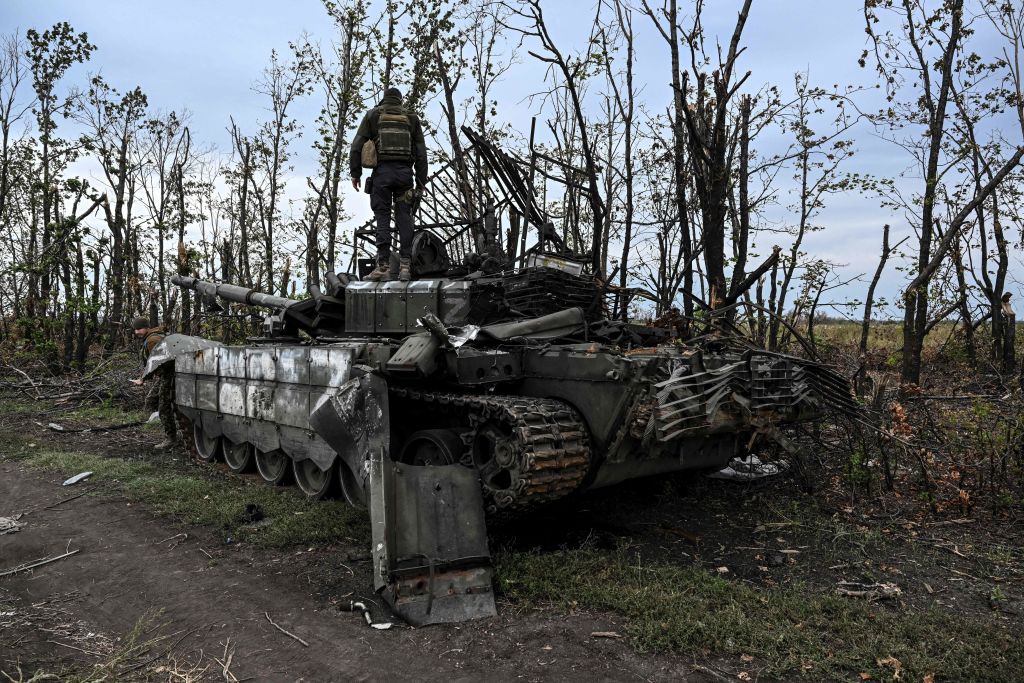
In Ukraine, the tables have turned. In the province that surrounds Kharkiv, Ukraine’s second city, an attack reportedly meant to probe for weakness in Russian lines became a major counter-offensive when thousands of Russian soldiers simply turned and fled.
In the past week, Ukraine has regained more territory than Russia has captured in months, and the mood of its political and military leaders has turned dramatically upbeat. Russian artillery attacks that briefly knocked out power and water in parts of Ukraine have done little to dampen the mood. Earlier this week, Ukraine’s President Volodmyr Zelensky used social media site Telegram to ask Russians some pointed questions: “Do you still think that we [Russians and Ukrainians] are ‘one people’? Do you still think that you can scare us, break us? … We will be without gas, light, water and food … and WITHOUT you!”
Just as Ukraine demonstrated in the war’s early weeks that Russian victory plans were pure delusion, their latest gains again make clear that Vladimir Putin’s war refuses to go to plan. Importantly, they show Ukraine’s backers in America and Europe that its war effort remains an investment that offers returns. Ukrainian fighters have used Western weapons—and training in how to use, protect, and maintain them—to push Russian forces onto the back foot in different parts of the country. Here the timing is crucial: an expected tough winter in Europe, created in part by an energy crisis fueled by the war, is expected to test European public patience with costly support for Kyiv. Ukraine’s gains can make that support easier for European leaders to sell at home.
Inside Russia, the mood continues to sour. Criticism of battlefield failures remains safely directed at Russia’s defense department, not at the president who pushed the generals into a war they were ill-prepared to wage. Complaints from Russian nationalists have grown louder. Chechen strongman Ramzan Kadyrov, a valuable contributor of troops to Putin’s army, has publicly warned the Russian brass that further failure will lead him to have a word with Russia’s president.
Yet, Ukraine’s latest success is unlikely to shorten the war. New confidence in Kyiv and public handwringing among Russians and their allies aside, Russian forces still have a firm grip on much of the Donbas region, on land seized along the Black Sea coast, and on the territory that connects them together. More worrisome, Ukraine’s advance may also make the war more dangerous. Putin now finds himself in a tight spot, and that should worry those who fear expansion of the war. Russia’s president has shown no sign during his political life that he will admit a mistake— certainly not one as big as this war—and reverse course. And though he insists Russia is at war with the West and its military alliance, a claim made more credible by Western military and financial backing for Ukraine’s army, he has avoided changing the rules of engagement to widen the conflict beyond Ukraine’s borders.
His government continues to threaten any Russian who describes the war as a “war” with 15 years in prison, and he has refused the demands of Russian online hawks to order a draft that forces hundreds of thousands of Russian civilians to grab a rifle. Perhaps he fears conscription would dramatically shift Russian public opinion against his “special military operation.” Or perhaps he knows that, given the need to train and equip all these new soldiers, a large-scale draft is too little too late to force an end to the stalemate in Ukraine anytime soon.
This leaves the West to worry that Putin, like the famous rat he trapped as a child who chose to fight once backed into a corner, will turn to weapons of mass destruction he has so far kept in reserve.
Ukraine’s gains of the past week have shifted the military stalemate. But the end of the war remains out of reach.
More Must-Reads from TIME
- Why Trump’s Message Worked on Latino Men
- What Trump’s Win Could Mean for Housing
- The 100 Must-Read Books of 2024
- Sleep Doctors Share the 1 Tip That’s Changed Their Lives
- Column: Let’s Bring Back Romance
- What It’s Like to Have Long COVID As a Kid
- FX’s Say Nothing Is the Must-Watch Political Thriller of 2024
- Merle Bombardieri Is Helping People Make the Baby Decision
Contact us at letters@time.com